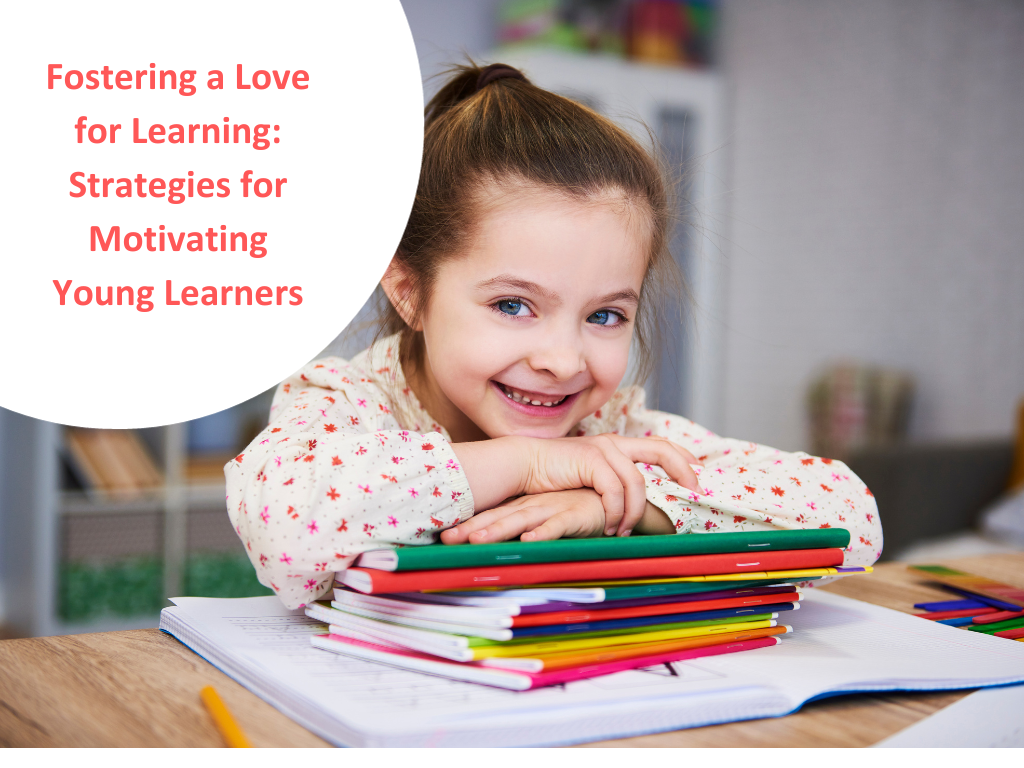The journey of education begins with a spark, a spark of curiosity and wonder that fuels a child’s innate desire to learn. Nurturing this love for learning is essential for a child’s academic success and personal growth. In this article, we at K.R. Mangalam Global School, GK-1 will explore effective strategies for motivating young learners and igniting their passion for education.
Understanding the Importance of Motivation
Motivation is the driving force that propels individuals toward their goals and aspirations. In the context of education, it plays a pivotal role in a child’s academic journey. Motivated learners are more likely to excel academically, exhibit a positive attitude toward school, and continue their education beyond the required years. Here are some essential reasons why fostering a love for learning is crucial:
- Lifelong Learning: When children develop a love for learning early on, they are more likely to become lifelong learners, continually seeking knowledge and self-improvement throughout their lives.
- Academic Success: Motivated students tend to perform better academically. They are more engaged in the learning process and are willing to put in the effort required to succeed.
- Intrinsic Motivation: Cultivating a love for learning instills intrinsic motivation, where children are driven by a genuine interest in the subject matter rather than external rewards.
- Resilience: Motivated learners are more resilient in the face of challenges. They are willing to persevere and overcome obstacles because they find the learning process itself rewarding.
- Personal Growth: Beyond academics, a love for learning contributes to personal growth, character development, and the acquisition of essential life skills.
Now, let’s explore strategies for motivating young learners:
Create a Stimulating Learning Environment
A conducive learning environment is vital for fostering a love for learning. It should be safe, welcoming, and filled with opportunities for exploration.
- Embrace Inquiry-Based Learning
Encourage students to ask questions and explore topics that interest them. Inquiry-based learning allows students to take ownership of their education, making the learning process more enjoyable and meaningful.
- Celebrate Achievements
Recognize and celebrate students’ achievements, both big and small. Positive reinforcement through praise and rewards reinforces their motivation to succeed.
- Personalize Learning Experiences
Every child is unique, with their own interests and learning styles. Personalizing the learning experience to cater to individual needs helps students feel valued and engaged.
- Integrate Technology
Leverage technology as a tool to enhance learning. Educational apps, online resources, and interactive multimedia can make lessons more engaging and relevant to today’s tech-savvy learners.
- Encourage Critical Thinking
Foster critical thinking skills by posing open-ended questions and encouraging students to analyze, evaluate, and solve problems. Critical thinking not only stimulates curiosity but also empowers students to become independent learners.
- Promote Autonomy
Allow students to have a say in their learning. Give them choices when appropriate, allowing them to select topics, projects, or activities that align with their interests.
- Real-World Applications
Show students how what they’re learning is relevant in the real world. Connect classroom concepts to practical applications and career opportunities.
- Encourage Collaboration
Collaborative learning can be highly motivating. Working together on projects and problem-solving tasks promotes engagement and exposes students to diverse perspectives.
- Inspire Creativity
Creativity is a powerful motivator. Encourage students to express themselves through art, music, writing, and other creative outlets. Recognize and celebrate their creative achievements.
- Be a Role Model
Teachers and parents serve as role models for young learners. Demonstrate a love for learning by being curious, asking questions, and pursuing your own interests.
- Encourage Reading
Reading is a gateway to knowledge and imagination. Encourage regular reading, both for pleasure and learning. Provide access to a diverse range of books and create a culture of reading at home and in school.
- Foster a Growth Mindset
Teach children about the importance of effort, perseverance, and resilience. Help them understand that mistakes are opportunities for learning and growth. A growth mindset encourages students to embrace challenges and view setbacks as stepping stones to success.
- Connect Learning to Real-World Goals
Help students set goals and connect their learning to their aspirations. When students see the relevance of their education to their future ambitions, they are more motivated to learn.
- Make Learning Fun
Above all, make learning enjoyable. Incorporate games, hands-on activities, and interactive lessons into the curriculum.
Conclusion
Fostering a love for learning is a gift that will benefit children throughout their lives. We at K.R. Mangalam Global School, GK-1 believe that effective strategies for motivating young learners prioritize curiosity, personalization, and engagement. By embracing these strategies, parents and educators can inspire a lifelong passion for learning in the next generation, empowering them to excel academically and pursue their dreams with enthusiasm and purpose.
